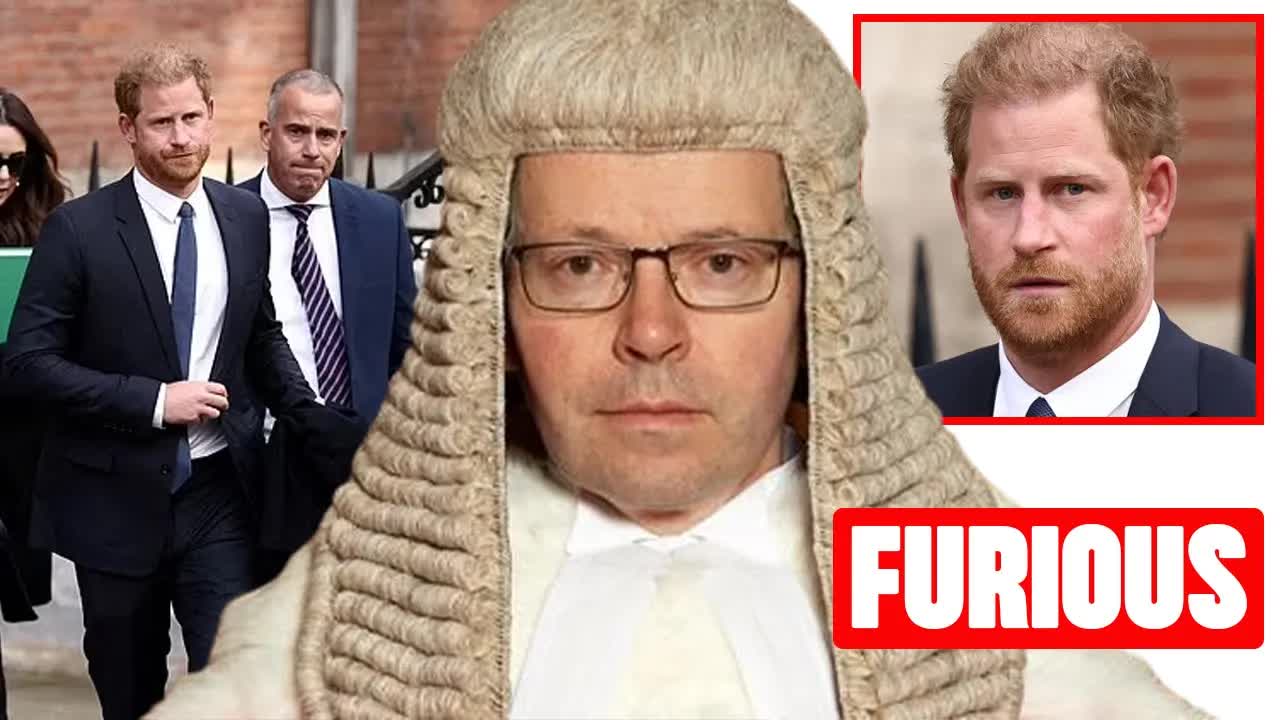Must Read
### Duke of Sussex’s Legal Woes: High Court Judge Dismisses Bugging Allegations Against The Sun
In a recent courtroom showdown, a High Court judge has dismissed Prince Harry's allegations regarding purported bugging and tracking devices allegedly planted by The Sun.
Mr. Justice Fancourt was evidently unimpressed with the Duke of Sussex's claims, pointing out that Harry failed to provide any specific evidence to back up his long-standing accusations against the tabloid.
Harry, along with approximately 40 other claimants, finds himself embroiled in a legal battle against the publisher of The Sun.
They allege that their personal information was unlawfully accessed or hacked to concoct sensational tabloid stories.
One would think such serious claims would come with a solid strategy or at least some credible proof, but the reality is that Harry's legal narrative resembles more of a poorly scripted drama than a compelling court case.
The judge's preliminary ruling denied Harry the opportunity to include certain allegations, notably those concerning his former girlfriend Chelsea Davies' car being bugged.
It appears that the prince has since withdrawn this claim, perhaps realizing that his legal approach looked more like a soap opera plot twist than a serious endeavor.
Justice Fancourt made it clear that no specific details were provided regarding the alleged bugging, further emphasizing that the previous allegation about Davies' car had been retracted.
Adding to the absurdity, the judge also dismissed Harry's attempts to bring in claims concerning the use of listening and tracking devices, criticizing him for not providing substantial evidence to support these dramatic assertions.
One can only imagine the scene, with Harry passionately presenting his case while the judge simply shakes his head in disbelief.
This isn't the first time Harry's legal ambitions have faced setbacks.
Just last year, Justice Fancourt rejected his claims of phone hacking, stating that the prince had waited too long to pursue legal action.
Harry contended that a supposed secret agreement with Buckingham Palace had prevented him from coming forward sooner, a notion the judge deemed implausible.
It's as if Harry perceives himself as living in a fairy tale, believing that royal status exempts him from the usual rules of accountability.
Justice Fancourt even likened Harry's situation to a protracted conflict between two stubborn yet well-funded armies.
This colorful analogy paints a humorous picture of Harry, adorned in a makeshift crown, marching into the courtroom with a battalion of eager lawyers, ready to confront imaginary foes while The Sun rolls its eyes and files paperwork.
Despite the ongoing legal turmoil, the judge has allowed Harry's legal team to amend certain aspects of their case presentation, while simultaneously upholding some objections from The Sun.
He stressed that the scheduled trial in January must either proceed or be settled outside of court, urging Harry to bring this drawn-out saga to a close.
Perhaps the most ironic element of this entire affair is Harry's persistent portrayal of himself as a victim.
Critics might argue that his relentless complaints about privacy invasions are a classic case of hypocrisy.
After all, he has not shied away from sharing intimate details of his life, often resembling a leaking faucet in need of repair.
The royal family has been the subject of his revelations both before and after the passing of Queen Elizabeth II, and yet here he stands in court, pointing fingers at the press.
It's hard not to feel a mix of sympathy and exasperation for the prince, who seems caught in a whirlwind of his own making.
As the judge grows increasingly weary of Harry's paranoid assertions, he has made it crystal clear: it's time to stop wasting the court's valuable time.
The message is loud and clear—Harry, it's time to face reality.
You may have been born into royalty, but that doesn't make you the center of the universe.




















